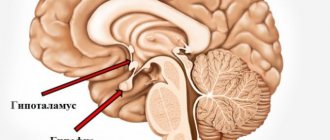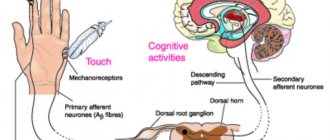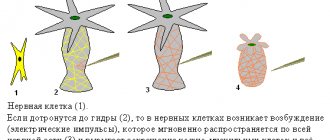With silent steps he approaches me - the most pleasant of thieves, and steals my thoughts, and I freeze in place... Friedrich Nietzsche
Every night we all fall asleep and sleep until the morning. About 8 hours a day and about 25 years in my entire life. Sleep is vital, and a person must sleep every day and for a sufficient amount of time.
In some cases, we find ourselves deprived of the required portion of sleep - for example, due to night shifts at work. Even one night without proper rest worsens your well-being, mood and performance. Not sleeping for two, three or more nights in a row is extremely difficult and even more harmful.
The documented world record for no sleep is 11 days, set half a century ago by a young American, Randy Gardner. By the end of the experiment, the brave natural scientist was in a state of psychosis, suffered from hallucinations and did not remember his name. If you do not allow a person to sleep at all, after about 2 weeks he may die from severe brain disorders. Why is sleep needed, what is the reason for its exceptional importance and what is it even?
Test online:
Assess how you feel during the day to see if you have sleep disorders
What is a dream
It’s hard to imagine, but today there is no absolute definition of sleep. To give a rough description of the term, sleep is a normal physiological state in which a person has a reduced reaction to the outside world and the goal of which is rest and recovery.
Previously, people had a very primitive idea of the physiology of sleep. They believed that during sleep the soul leaves the body and travels around the world (the global information field? the astral world?). What she sees during her “journey” is remembered by a person as dreams. Now we can say with confidence that we do not go to the astral plane in our dreams. However, the origin of the dream is still full of mysteries. Humanity is tens of thousands of years old, and during this time we have not figured out what sleep is! Somnology - the science of sleep - arose only about 50 years ago, and during this time, despite its fairly rapid development, it has not yet managed to answer questions about the physiology of sleep and its functions.
In fact, only three things are completely obvious.
- The sleeper is in a state of relaxation and almost complete immobility.
- During sleep, a person has a limited perception of reality. It is impossible to say that perception is “turned off” completely: it has been proven that sleeping people can react to odors, in addition, everyone can be woken up by the ringing of an alarm clock.
- During sleep, amazing cyclical processes occur in the brain that distinguish sleep from wakefulness and other similar states: coma, fainting, hypnotic trance.
The subtleties are still unknown to scientists. However, they were able to study the structure of sleep and describe some of the processes occurring in the body while a person sleeps.
slow sleep
Stage I. During this state of sleep, interesting thoughts and new ideas arise in the subconscious of a person. He dozes more than he sleeps. This state lasts approximately 5–10 minutes.
Stage II. On it, a person’s consciousness completely turns off, and a full-fledged sleep occurs. In this phase, which lasts approximately 20 minutes, the auditory analyzers become sharper. At this time, you can easily wake up from minor noise, movement in the bed, and the like.
Stage III. It is a kind of continuation of the second phase and is deeper. In this case, the person is no longer awakened by minor rustles and sounds. The stage lasts approximately 45 minutes.
Stage IV. Characterized by very deep sleep. It is much more difficult to wake a person than in the third stage. Vivid dreams are noted, and some people suffer from sleepwalking. Usually, when a person enters the waking state, he does not remember the dreams he had in this phase. This state lasts approximately 45 minutes.
Sleep structure
Most people sleep once a day, at night. From the outside, sleep looks quite monotonous, predictable, even boring: a person goes to bed in the evening, closes his eyes and remains in bed until the morning. However, in reality, sleep is a very dynamic phenomenon. This has been proven by research into the processes that occur in the brain of those who sleep.
It's no secret that the human body produces weak electricity. When the heart, muscles and other organs work, an electromagnetic field is generated. The brain is a particularly active “electric generator”. Its bioelectrical activity changes significantly throughout the night. The study of this activity using encephalography allowed specialists to learn about the structure of sleep and identify its cycles, phases and stages.
The usual duration of night sleep is 7-8 hours. This period consists of several (4-5) identical “pieces”, which are called cycles. Each cycle includes a certain sequence of phases and stages.
After a person falls asleep, he enters the slow-wave sleep phase. Such a dream is called “slow” because during its duration a person’s eyes, under closed eyelids, make slow floating movements.
I slow-wave sleep (sometimes also called napping) occurs immediately after falling asleep. This is the most superficial sleep that is easily disturbed; If you wake a person during stage I sleep, he often denies that he managed to fall asleep. In terms of time, stage I lasts no more than 5% of the duration of the entire sleep.
II of slow-wave sleep, during which specific phenomena appear on the sleeper’s encephalogram - “sleep spindles” and “K-complexes”. One recent study has linked them to memory performance, although their function is not yet fully understood. In stage II, sleep gradually deepens, although it is still superficial sleep. Its duration reaches up to 60% of the total sleep time.
Previously, two more deep stages were distinguished in slow-wave sleep – III and IV. However, not so long ago, the American Academy of Sleep Medicine combined them into one - delta sleep, or slow-wave deep sleep. It occurs after phase II. At this time, a person’s body temperature and heart rate decrease as much as possible, muscle tone decreases, and many important hormones are released. This is the deepest sleep; waking a person during this period is the most difficult. During delta sleep, the sleeper experiences his first dreams, and this stage is also the most vulnerable to various disorders. It is with delta sleep disorders that a person experiences sleepwalking, night terrors, enuresis, and talking in his sleep.
After delta sleep, rapid eye movement sleep ( REM . The moment of transition can be determined even if the person is not “connected” to the encephalograph. It is enough just to look at the sleeping person from the side. Rapid eye movements occur during REM sleep. The state of the sleeping person’s brain at this time resembles that during wakefulness; breathing and heart rate increase. In REM sleep, a person sees the greatest number of dreams, and if you wake him up during this phase, he remembers them very well. However, in general, awakening during REM sleep is almost as difficult as during deep stages of slow-wave sleep.
An interesting feature of REM sleep is that the sleeper's body muscle tone decreases - in fact, he becomes paralyzed. It is assumed that the purpose of this phenomenon is to prevent a person from repeating the movements that he makes in his dreams.
After the end of the REM sleep stage, the entire “sleepy” cycle ends. The brain is briefly stimulated and then moves on to the next cycle, which includes an identical sequence of phases.
One cycle lasts about 90 minutes. That is why waking up in the morning occurs most easily when the time from the moment of falling asleep is a multiple of 1.5 hours. A person wakes up at the border of two sleep cycles, when his sleep is most superficial and it is easiest to transition to wakefulness.
And a few more words about sleep health
When discussing healthy sleep, we cannot ignore sleep hygiene, physical activity and sleep-disordered breathing, which affect the stability and quality of night's rest.
"Timing"
There are currently no generally accepted standards for going to bed and waking up. The legend about the “correct” time to fall asleep and more useful hours of sleep remains an unconfirmed legend. However, most experts talk about the importance of maintaining a sleep-wake schedule. The following factors can lead to negative health consequences:
- discrepancy between actual bedtime and internal biorhythms;
- the habit of getting enough sleep on weekends, with regular lack of sleep on weekdays;
- the so-called “social jet lag” - a nocturnal lifestyle on weekends, followed by a return to normal sleep and wakefulness during the work week;
- generally unstable sleep and wake patterns (shift work).
Sleep disordered breathing
A common pathology is obstructive sleep apnea, i.e. frequent stoppages of breathing associated with mechanical closure of the pharynx by collapsing soft tissues. Such breathing pauses, among other things, destroy the structure of sleep. When breathing is interrupted and oxygen stops flowing into the blood, a signal is sent to the brain to wake up in order to tone the muscles of the pharynx, restore patency of the airways and begin to breathe normally. Because of this, the sleep cycle does not end, but starts anew after each such micro-awakening. As a result, the most important phases of deep sleep for the body may be almost completely absent in the structure of night sleep. This disrupts the production of hormones, leading to chronic fatigue and the inability to get enough sleep, even if a person spends a lot of time in bed.
Abnormal motor activity
A very common problem is the so-called restless legs syndrome and periodic limb movement syndrome during sleep. Restless legs syndrome is an obsessive urge to move your legs, usually worse in bed, that interferes with sleep and often causes insomnia. Periodic movements of the limbs (usually legs) occur after falling asleep, disrupt the normal course of sleep and often lead to excessive daytime sleepiness.
Other manifestations of pathological motor activity are sleepwalking (somnambulism) and teeth grinding (bruxism), which are quite different in their external manifestations.
Sleep quality can be assessed in different ways. But at the same time, scientists and doctors note the importance of developing an integrated approach that will increase the accuracy of predictions regarding the adverse consequences of poor night's rest, and will also allow us to determine individual sleep standards for each person, taking into account personal characteristics, lifestyle, social employment and other parameters. In the meantime, one of the main markers for both the patient and the doctor is quality of life. If sleep does not bring complete rest, and you want to sleep during the day, then you should consult a somnologist. And there is a high chance that it will help fix your problem.
Sleep functions
When asked why sleep is needed, everyone will answer: so that the body can rest! But is he really resting?
Yes, during sleep, muscles relax, the speed of metabolic processes decreases, and all organs work at half capacity. But the changes occurring in the sleeping brain do not allow us to say that the nervous system is also resting.
There is an expression: “A change of activity is the best rest.” For the brain, sleep is just a change of activity, but not relaxation. All night the nerve centers are in full swing - the brain implements the functions of sleep.
So, why should a person sleep?
- Organs and muscles get a “break”
- The body replenishes energy resources
- During sleep, under the guidance of the brain, “cleaning” occurs in the body; the processes of binding and neutralizing toxins are actively underway. The brain also cleanses itself. In 2012, foreign scientists discovered the glymphatic system - a system of microtubules in the brain that opens during sleep and is responsible for removing toxins from the central nervous system.
- Memorization occurs, long-term memory is formed, and new skills are consolidated.
- A “scan” of the body is carried out - analysis of the state of organs, as well as elimination of identified problems.
- The state of immunity improves, since it is during sleep that the most active formation of immunocompetent cells occurs.
The Importance of Deep Sleep
Why is the delta phase important in the process of night rest? During the day, the brain receives and processes a huge amount of varied information, and its memorization occurs in the delta phase. That is, the effectiveness of learning and the level of intellectual development directly depend on the quality and duration of deep sleep. In addition to transferring acquired knowledge from short-term memory to long-term memory, physiological processes are of great importance.
In the course of scientific research, it was found that maximum muscle relaxation is observed in the deep stage. At the same time, catabolism slows down and anabolism – the restoration of body cells – is activated. It removes toxins and other harmful waste products, and improves immunity.
Thus, a person fully rests during the period of delta sleep. A change in its duration or a failure of the entire cycle leads to chronic fatigue, drowsiness, a weakened immune system, and a decrease in intellectual abilities.
What it is
Scientists call the deep stage of slow rest, which is responsible for the process of restoring the body after a busy day. It occurs at night during rest. In science it is called slow-wave, orthodox or delta sleep. Its difference from superficial is a slowdown in brain activity, a decrease in muscle activity, and a decrease in sensitivity to odors and external stimuli.
Interestingly, researchers who studied deep sleep over a long period of time found that the brain does not rest when it sleeps. It processes the information received during the day. Thus, the brain is constantly functioning and the thought of resting during this sleepy stage is incorrect.








